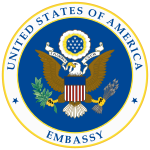ある駐日アメリカ外交官の憂鬱 パート2


また、続いてもうひとつの不満は、部下(職員)の仕事対応、パフォーマンスでした。
日本人職員(スタッフ)は、当然沢山いましたが、「職員の仕事がちょっと違う
感じですね。日本人は真面目だけど少し考えが単純では?(十分ではない)!?」
との評価でした。
それはどういうこと?
個人的には大使館職員は英語も堪能で優秀な職員のイメージが強かったので?
その理由はと言うと、当時、1990年代はアメリカ経済が混迷し、日米間の
貿易摩擦が深刻化していたので、様々な分野での利害調整が必要な時期でした。
本当に過去に経験がないほどの難問山積状態だったと思います。
そうした中、彼は初めての日本駐在で、多くの課題を抱えて 部下にそれぞれの
解決の提案を求めましたが、十分な回答が得られないとの事でした。
彼は「日本人は少し発想が単調単純、情報収集して過去の事例から解決法を探す
感じですね。」と話し、続いて、「アメリカでは様々資料の中から課題に対する、
その特異性を見つけ、その現実的な解決策を自分なりに判断・提案し、
その結果が評価されます!」と話しました。
私は 最初は直ぐには、理解が出来ませんでしたが、自分のアメリカ体験を振り返ると
少し納得しました。
理由は 一般的に 「American loves why!」(アメリカ人は何故が好き!)
アメリカ人は知らない事、分からない事があると何故、何故と質問するのを好みます。
彼の主張は一つサンプルとして、アメリカと日本のビジネス、教育スタイルの相違の
典型的な産物だと思いました。
例えば、日本では上司から仕事を任されると、多くの情報、資料を提示し判断を仰ぐ、
いわゆる忖度、上意下達スタイルが伝統的・オーソドックスなスタイルです!
しかし、アメリカは違います!
担当者は課題に対し収集した様々な情報、資料から問題解決の分析、判断を求められます。
彼は分析・判断後の提案を求めているのに!それが少ないのが不満そうでした。
当然、詳しくは分かりませが、こうしたスタイルの違いに戸惑い、悩んでいました。
背景としてアメリカでは、大学の授業はディベートが主流で 様々な考え方の中で
ベターな解決方法を提案・模索するスタイルです。
これに対し、日本の大学では教授の講義を聞くことが主流で、実社会でも
課題に対し基本的資料を収集はするものの、過去の事例を参考にして、あまり
深い検討はしない傾向があったと思います。
いわゆる日本流の「判例主義」です。
このため、現場の個人の意思、判断等が反映されない傾向があったと思います。
勿論、こうしたスタイルと違う会社もあるとは思いますが。。。。。
大使館では、日本人スタッフの何人かとはお会いしましたが、個人的な感想では、
皆さん礼儀正しく、非常に優秀で「エリート中のエリート」そのものでした。
わずかの訪問でしたが、文化の違い、仕事の手法の違い、官僚養成システムの
違いを実感しました。
以上の経験は、20年以上も前の事なので、今は大きく変わっていると思います。
最後に、この訪問の自分へのお土産、記念品として 館内で販売されていた
青色のポロシャツを買いました。
胸には「 Embassy of United States America」 の銀色の刺繍が
輝いていました。
The Depression of an American Diplomat in Japan! Part 2
Another complaint I had was the performance of my subordinates (staff).
Naturally, there were many Japanese employees (staff), but “their work was a little different.
Japanese people are serious but a little simple-minded, aren’t they? (Not good enough)?
That was the evaluation.
What does that mean?
Personally, I had a strong image of embassy staff as being excellent and fluent in English.
The reason was that in the 1990s, the U.S. economy was in turmoil and trade friction
between Japan and the U.S. was getting worse.
At that time, it was a time when we needed to adjust our interests in various fields.
It was truly a time of unprecedented difficulties.
In such a situation, he was stationed in Japan for the first time and had to face many challenges
and asked his subordinates to propose solutions to each of them.
He asked his subordinates for suggestions on how to solve each problem,
but he could not get sufficient answers.
He said, “Japanese people are a little monotonous in their thinking, they gather information
and look for solutions from past cases.
He continued, “In the U.S., you have to find the specificity of the problem in various materials,
make your own judgment and proposal for a practical solution, and the result is evaluated!
I didn’t understand it right away, but when I looked back at my own experience in the U.S.
It made a little more sense.
The reason for this is that, in general, “Americans love why!
Whenever they don’t know something or don’t understand something,
Americans love to ask why and why not.
As a sample of his argument, I thought it was a typical product of the differences in business
and educational styles between the US and Japan.
For example, in Japan, when you are assigned a task by your boss,
the traditional and orthodox style is to present a lot of information and materials and ask for a decision.
However, this is not the case in America!
The person in charge is asked to analyze and make a decision on how to solve the problem
based on the various information and materials he has collected.
He was asking for proposals after analysis and judgment! He seemed to be unhappy with the lack of it.
Naturally, I didn’t know the details, but I was puzzled and troubled by these differences in style.
As a background, in the U.S., debate is the mainstream in university classes,
with students proposing and seeking better solutions among various ideas.
In contrast, in Japanese universities, students tend to listen to lectures by professors.
This is the so-called “precedent principle” of the Japanese way.
As a result, the decisions and judgments of individuals in the field tended not to be reflected.
Of course, there are companies that do not follow this style. 。。。。。
I met some of the Japanese staff at the embassy,
and my personal impression is that they were all very polite and very competent.
They were all polite, extremely competent, and the “elite of the elites” themselves.
Although it was only a short visit, I realized the differences in culture, work methods,
and the bureaucratic training system.
I realized the differences in culture, work methods, and bureaucratic training systems.
The above experience was more than 20 years ago, so I am sure things have changed a lot now.
Lastly, I bought a blue polo shirt that was on sale in the office as a souvenir or memento of my visit.
I bought a blue polo shirt.
There was a silver embroidery of “Embassy United States America” on the chest.
